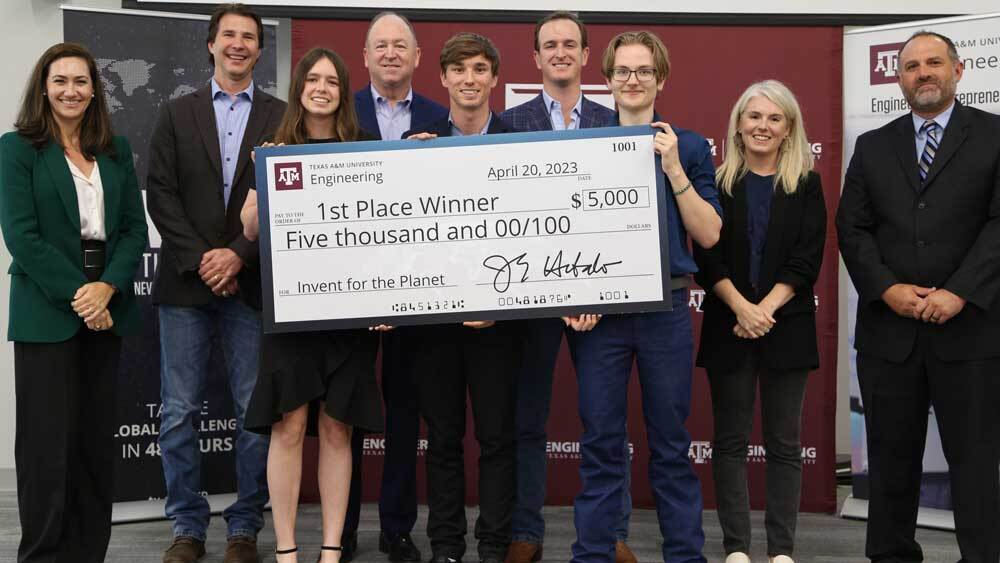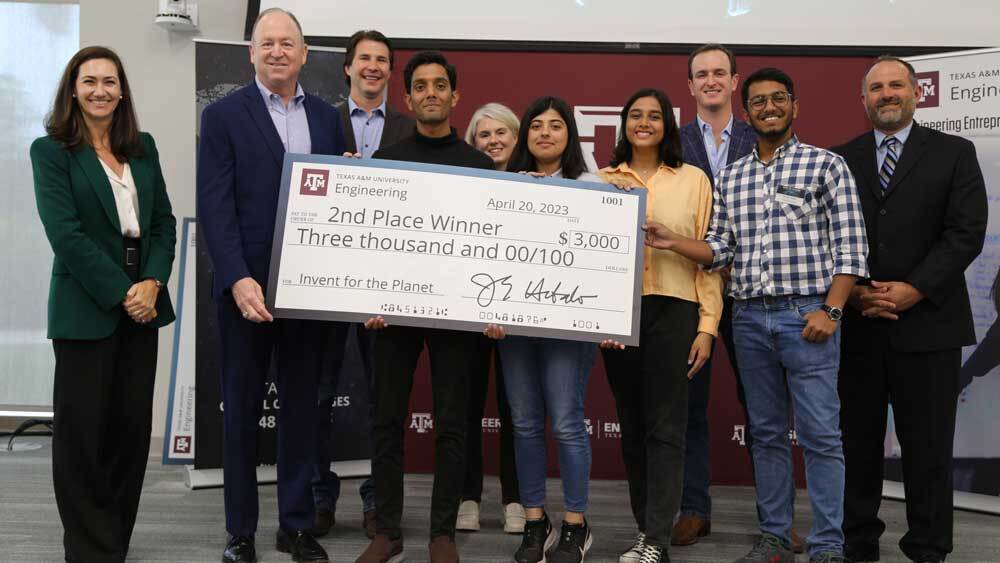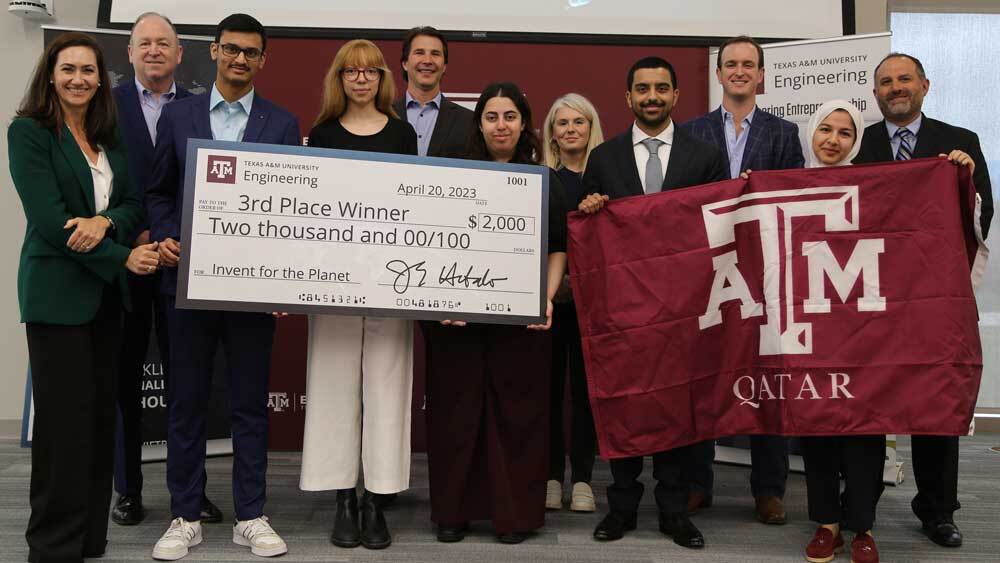
For the fifth year in a row, Texas A&M University held its annual global design competition, Invent for the Planet (IFTP). The competition hosted teams from countries across the world, including Pakistan, Qatar, Thailand and Wales.
The seven groups were allotted 10 minutes to present their refined pitches to a panel of distinguished judges within the engineering industry. Each contending team was competing for the grand prize of $5,000.
"For the first IFTP, all we could do was just try to see if we could connect people; we never really thought about actually solving the problem," said Rodney Boehm, director of Engineering Entrepreneurship. "But now it's evolved into these teams tackling incredibly complex problems, and they are coming up with unbelievably innovative solutions. And we're seeing these solutions actually being introduced to global development, and it makes a difference."
The judges ultimately chose the top three teams, and first place was given to the team from Wales, H2Grow, featuring two Texas A&M students and Engineering Entrepreneurship alumni who are currently on a study abroad trip, Matthew Coomes and Rachel Simms. The team's challenge was to tackle how farmers can use wastewater to water their crops.
Usually, farmers rely on the monsoon season, but the team created a multi-layer filtration system that could filter this water year-round. Even though the team dealt with agriculture, its members were electrical and mechanical engineers.
"Anything in engineering is not a single discipline," said Coomes, a sophomore interdisciplinary engineering student. "You need to expand to a variety of fields, even if it's just dipping your toe in and taking a class or two in them to see the full picture."

Second place was awarded to the team from Pakistan's Habib University, FinDiesel. The team's challenge was finding a way to effectively utilize fish waste accumulating in the ocean and upcycle it back into the community and environment.
Their solution was to provide fishermen with a kit containing the necessary materials for fish oil extraction. The kit includes an instruction manual, gloves and chemicals such as sodium hydroxide for the fishermen to use easily.
"I've learned that there's more than one way to solve a problem, and you don't have to be bounded by your major or your degree because we're all from computer science backgrounds," said sophomore computer science engineering student Rabia Shahab. "If you invest in something and really believe you have the potential to do it, I think that you can achieve that."
The team encouraged people to try things that get them out of their comfort zone and think outside the box.
"You never know where it might take you, and you never know how much fun you're going to have while doing it," Shahab said.

The third-place award was given to Eco-Engineers from Texas A&M University at Qatar for combatting issues with clean energy solutions. The team focused on micro-cracks in solar panels and developed a self-healing chemical material that fills in the gaps in the solar panels. This increases the durability, so there is less need to fix it constantly.
"I think it's an amazing opportunity to be able to win first place in my country and then proceed to College Station and compete," said Joud Massalkhi, a sophomore electrical engineering student. "I think it's a very important experience to have as an engineer."
Apart from the main competition, there was a People's Choice Award competition, where the teams from IFTP were able to present their ideas to students passing by in the atrium of the Zachry Engineering Education Complex. The students then voted on which team had the best idea.
The winning team for the People's Choice Award was Izzy Filter from Texas A&M Corpus Christi, which worked toward developing a water filter that produces clean drinking water.
"This is my last one, and we'll be handing it over to others because we see the impact it has on students," Boehm said. "We also know that during Invent for the Planet, for that one weekend, there are no barriers and no boundaries. There's no political nature; there are only students trying to solve problems. So, for that weekend, the sun never sets on innovation."